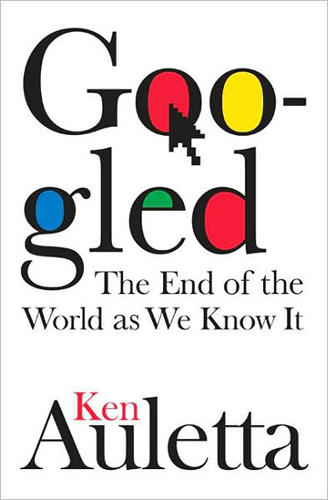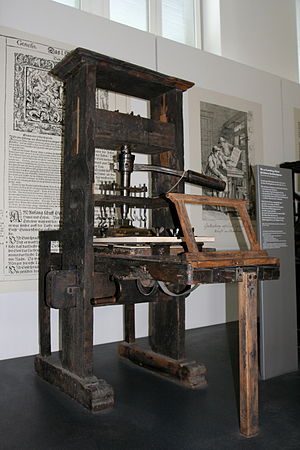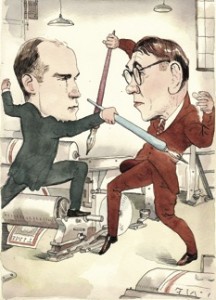Remember the newspaper?
 It used to come knocking at the door around six in the morning. It kept Dad busy for the first hour of the day. It made great wrapping paper and cushion for fragile pottery. Most of all, however, the newspaper did the most important job of keeping its readers informed.
It used to come knocking at the door around six in the morning. It kept Dad busy for the first hour of the day. It made great wrapping paper and cushion for fragile pottery. Most of all, however, the newspaper did the most important job of keeping its readers informed.
“A newspaper owner gets a place at every table, access to all the top politicians’ ears, and the power to impose his worldview on his readers,” writes Jack Shafer in a 2009 article for Slate titled, “The Great Newspaper Crackup of 1918.”
The newspaper has recently suffered a few setbacks — namely, the Internet — and alas, it’s finally on its way out. Most journalist mourn the death of the newspaper, but I say, why not celebrate it?
The truth is while the newspaper is dying, journalism isn’t. In fact, I happen to believe that journalism is in a period of renaissance. The rebirth of word-of-mouth journalism in the form of blogging and micro-blogging has made way to a whole new wave of journalists that exert more creativity than any writer, editor or distributor of old news.
At the same time, we shouldn’t forget to celebrate the life of the newspaper, which, if you think about it, lasted an extremely long time. To be exact, if you include the tipao and the acta, the newspaper lived for well over 1,000 years. I’d say that’s a reason for praise.
One setback, however, of the rapid popularity and velocity of the Internet, is the cheapened state of journalism that the web has perpetuated. In a 2007 Wall Street Journal article titled, “Read All About It: How newspapers got into such a fix, and where they go from here,” Paul E. Steiger discusses the many implications of the death of newspapers and the rise of online journalism.
“Anyone with a fact, a comment, a snapshot or a video clip can self-publish and instantly compete with the professionals,” Steiger states.
With the opportunity to be a journalist being given to anyone and everyone, there is the fear that it will lead to a less-informed public. I happen to believe that the mass boom of online bloggers and word-of-mouth news will be more reliable than network news and newspapers. The reasoning is that social media is self-correcting. If an inaccuracy is published, someone else will come along and correct it. This domino effect will take place until the truth is out. The real danger (in my opinion) lies in trusting a single gatekeeper (or a select few) to keep the public informed.

 Ken Auletta’s tell-all book, “Googled: The End of the World as We Know It,” is a product of countless hours put into researching the company’s inner workings after being granted full access to the executives, engineers and all the resources he needed to write a fair and balanced analysis of Google’s past, present and future.
Ken Auletta’s tell-all book, “Googled: The End of the World as We Know It,” is a product of countless hours put into researching the company’s inner workings after being granted full access to the executives, engineers and all the resources he needed to write a fair and balanced analysis of Google’s past, present and future.








